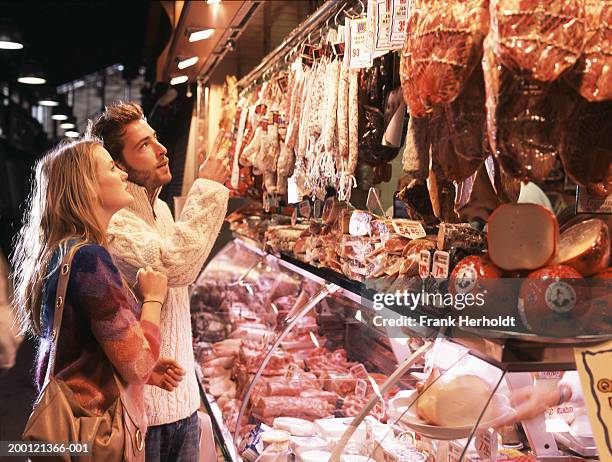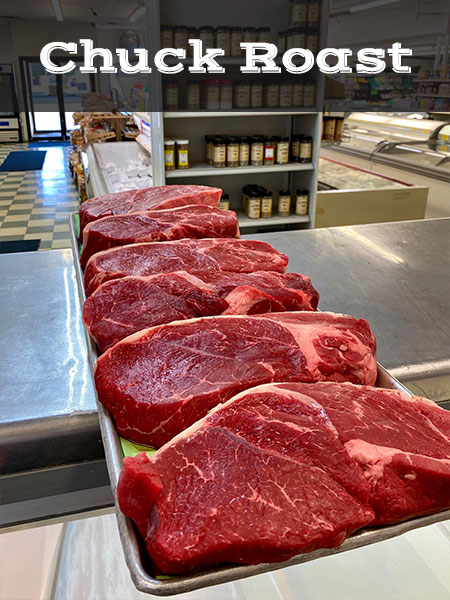Visit Bagley Meat Market Edwardsville IL for Top-Notch Butcher Services and Fresh Meats
Why Buying at a Neighborhood Meat Market Guarantees Fresh, High-Quality Cuts
Purchasing at a neighborhood meat market provides distinct advantages that often go undetected by consumers accustomed to larger retail chains. The implications of picking local prolong beyond instant advantages, motivating a more detailed exam of what this choice truly means for both customers and the regional economic climate.
Advantages of Regional Sourcing
In the world of food procurement, the advantages of local sourcing attract attention plainly. By purchasing meat from neighborhood markets, consumers acquire direct access to items that are often fresher and a lot more flavorful than those found in bigger, business grocery stores. Local sourcing reduces the time and range food takes a trip from ranch to table, which not only improves taste but also maintains nutritional value.

In addition, neighborhood sourcing typically offers transparency regarding the origins of the meat. Customers can inquire regarding the farming techniques used, animal welfare criteria, and whether the meat is grass-fed or natural. This information empowers consumers to make educated decisions straightened with their values.
Quality Assurance Specifications
Neighborhood meat markets commonly comply with extensive quality control requirements that ensure the items used fulfill high safety and freshness benchmarks. These criteria typically include numerous phases of the meat manufacturing procedure, from sourcing to managing and storage space.
First, local markets frequently develop rigid provider standards, making certain that only trusted ranches and producers are made use of - bagley meat market edwardsville il. This lowers the chance of contamination and advertises higher animal welfare requirements. Additionally, many regional meat markets apply routine inspections to verify that the meat is refined under sanitary problems, even more minimizing health dangers
Temperature control is one more critical aspect of quality control. Local meat markets frequently monitor refrigeration systems to keep optimal storage temperature levels, making sure that meat stays secure and fresh for usage. Furthermore, the application of traceability systems enables markets to track the origin of their products, providing transparency and responsibility.
Last but not least, staff at regional meat markets are typically trained to identify indications of wasting and comprehend correct handling strategies. This dedication to high quality control not just raises the general standard of the meat yet additionally promotes consumer depend on, making regional meat markets a trusted resource for high-quality cuts.
Sustaining Local Farmers
Sustaining local farmers is important for promoting a sustainable food system and enhancing area resilience. When consumers choose to shop at regional meat markets, they straight add to the resources of farmers in their area. This not just sustains the neighborhood economic climate but likewise reinforces the agricultural industry, making sure that it continues to be vibrant and practical.


Additionally, sustaining regional farmers cultivates a sense of community and connection in between customers and manufacturers. It motivates openness in look at more info food sourcing and instills depend on, as customers can create partnerships with the people who increase their food. This direct link ultimately brings about an extra see involved and notified public, which is critical for advocating for lasting farming practices in the future.
Sustainable Practices
Lasting practices in meat markets play an important function in promoting environmental stewardship and guaranteeing animal well-being. Local meat markets commonly focus on sourcing their products from ranches that implement sustainable and honest farming approaches. These methods include rotational grazing, which helps preserve soil health and wellness and decreases carbon emissions, together with decreasing using anti-biotics and hormones in animals.
Additionally, local meat markets normally stress transparency in their supply chains. Clients are provided with information pertaining to the beginning of their meat, allowing them to make educated choices that align with their worths. By supporting local farmers that practice lasting methods, consumers contribute to the conservation of biodiversity and the decrease of transportation emissions connected with long-distance meat distribution.
Additionally, several regional meat markets take part in waste decrease approaches, such as utilizing every part of the animal and advertising off-cuts that might otherwise go unsold. By fostering a more lasting technique to meat intake, these markets not only offer top notch products yet additionally contribute favorably to the setting and pet well-being. Essentially, shopping at a neighborhood meat market aligns customers with a wider activity towards accountable and moral food sourcing.
Personalized Customer Support
Purchasing at a meat market typically incorporates more than just the products offered; it is likewise regarding the experience and the connections constructed between consumers and team. Personalized client solution is a characteristic of neighborhood meat markets, setting them besides larger grocery store chains. Experienced personnel take the time to comprehend private client preferences, making sure that each visit is tailored to certain demands.
Customers profit from expert advice on cuts, cooking methods, and preparation pointers, cultivating a feeling of trust fund and loyalty. This personalized communication allows clients to ask concerns and seek recommendations, resulting in educated getting decisions. Personnel often keep in mind routine clients and read what he said their preferences, producing an inviting environment that grows community connections.
Moreover, tailored service encompasses unique requests, such as customized cuts or certain prep work techniques, which larger sellers may not suit. This degree of focus reinforces the commitment of neighborhood meat markets to top quality and client fulfillment.
Essentially, personalized client service not only enhances the purchasing experience but also ensures that customers entrust to the very best products matched to their cooking requirements, making every check out a satisfying one.
Conclusion
Sustaining regional farmers promotes area relationships and strengthens the neighborhood economy, while sustainable methods add to environmental stewardship. Additionally, customized consumer solution enhances the buying experience, making neighborhood meat markets a preferred choice for consumers seeking both high quality and honest factors to consider in their food sourcing.
The implications of picking neighborhood extend beyond prompt benefits, triggering a more detailed examination of what this choice really means for both customers and the neighborhood economy.
Supporting regional meat markets likewise contributes to the regional economic situation. Neighborhood meat markets frequently check refrigeration systems to keep ideal storage temperatures, guaranteeing that meat remains safe and fresh for consumption.Local farmers are commonly a lot more attuned to the particular demands of their neighborhoods, expanding crops and raising animals that line up with neighborhood tastes and choices. Supporting regional farmers promotes area connections and reinforces the neighborhood economy, while lasting practices add to ecological stewardship.